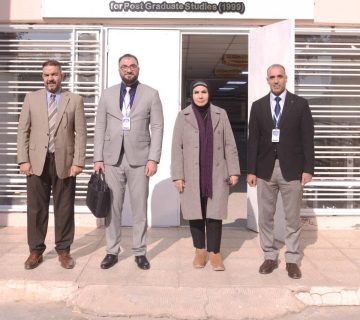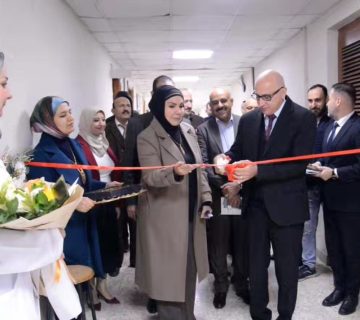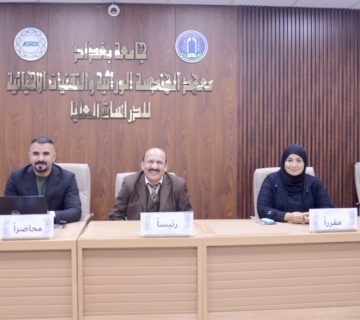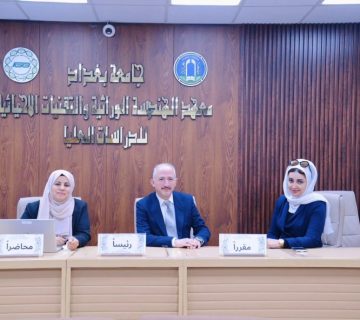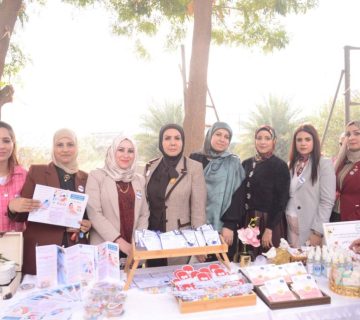Assistant Professor Dr. “Abdul Mohsen Muslim Shami,” a faculty member at the Institute of Genetic Engineering and Biotechnology for Graduate Studies at the University of Baghdad, participated in the defense of the PhD thesis titled “Production and Characterization of Biologically Active Melanin Pigment from Streptomyces atrovirens and Its Applications as an Environmentally Friendly Natural Dye” by the student “Saleh Qadir” from the College of Science at the University of Baghdad.
The research aimed at a new application of biologically active bacterial melanin pigments to create antimicrobial colored fabrics. This is despite the long-term widespread use of synthetic dyes, which raised concerns about their potential to cause cancer and other toxic effects, prompting researchers to explore natural sources, particularly microbial dye production.
The thesis recommended that microbial dyes could be a viable alternative, significantly contributing to the current literature by highlighting the potential of this natural resource. The study showed that natural multi-fiber fabrics have a higher affinity for melanin pigment compared to synthetic multi-fiber fabrics, further supporting the idea that natural fabrics have a greater attraction to natural dyes than their synthetic counterparts.





